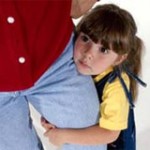By PRISCILLA J. DUNSTAN
McClatchy-Tribune
 Understanding what dominant sense your child is will make it easier to understand when they are being bullied and how to understand the signs. Being aware of behavioral exaggerations of their dominant sense, which may be different from your own, will help you gauge whether parental intervention is necessary, and what is manageable social interaction.
Understanding what dominant sense your child is will make it easier to understand when they are being bullied and how to understand the signs. Being aware of behavioral exaggerations of their dominant sense, which may be different from your own, will help you gauge whether parental intervention is necessary, and what is manageable social interaction.
Tactile children will be most sensitive to physical bullying. They will be most upset by the pushes, shoves, the knocking of books out of one’s hands. They will feel helpless by their inability to fight back, and the injustice of the breaking of rules and their inability to leave the school environment. You may find that they will be more physical when they get home, fluctuating between throwing their school bag around and slamming doors; to wanting to cuddle while watching TV.
They will require more physical closeness from mom and dad, perhaps by wanting to do their homework next to you or asking you to take them to school. They may be resistant to wanting to be outside, although often by doing a physical activity together, you as the parent will be able to help them process the events more clearly.
Visual children will be most sensitive to the public nature of bullying. If it happens when other children are watching, or hearing what’s being said, the visual child will worry that others will believe it. They will be stung by comments about on appearance, weight, or the clothes they wear. You may find your child complaining about their nose, refusing to eat or dramatically changing the way they dress or style their hair. Since so much of their identity is tied up with how they look to others, it’s important to support them with changes to clothes, hair, etc. Make it clear that these changes are merely an artistic expression that will continue to change over time, and not a reflection on the good person they are underneath.
Taste and smell children will be completely overwhelmed by the intent of the bully. It is inconceivable to a taste and smell child that someone would intentionally set out to say or do something to hurt another’s feelings. They will try to rationalize the bully’s feelings, and become immersed and unable to concentrate on anything other than “why?” This obsessive thought process is the taste and smell child’s way of coping, so describing situations where you may have gone through a similar thing will be helpful. Unfortunately, all the intellectual understanding in the world won’t help stop some people from being nasty, and this is a lesson the taste and smell child will just have to learn.
Auditory children will be most affected by nasty comments, taunts, name-calling and, of course, tone. Being called a nasty name is far more upsetting to an auditory child than a shove in the corridor. The “sticks and stones will break my bones, but names will never hurt me” rhyme does not apply to an auditory child for them, words cause real pain.
An auditory child will need to repeatedly talk out what was said by the bully, in order to comprehend it. The fortunate thing is that you will know about the bullying, because they will tell you about it, over and over. Be aware that sometimes, simply telling the auditory child that he said the right thing is all that’s needed to feel better.







